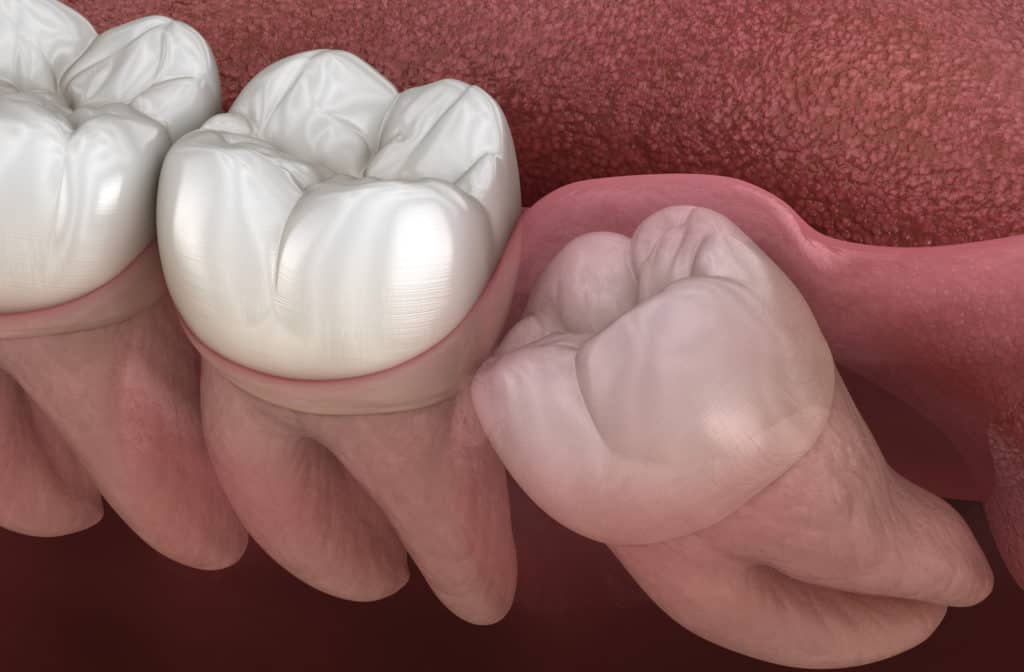3 Signs That You Need Your Wisdom Teeth Removed
The average adult grows in about 32 teeth, each one of them serving a specific function in your mouth. You have incisors, canines, premolars, and molars, but have you ever thought about the teeth you don’t necessarily need?
A third set of molars can grow in at the back of your mouth, called wisdom teeth. However, these teeth often cause numerous oral health issues as they grow in, forcing many adults to remove them before they cause too many problems later on.
But what are wisdom teeth? Does every adult need them removed at one point or another? And how do you know when you need to remove your wisdom teeth?
At South Ancaster Family Dental, we strive to help patients like you get the oral care they need and learn more about their dental health and how you can support it at home. Today, we will look at wisdom teeth, the issues they may cause, and when it’s best to have them removed.
If you’re wondering if your wisdom teeth are affecting your oral health, please book your appointment today, and we’ll get to work on providing the care you deserve!
What Are Wisdom Teeth?
Wisdom teeth are a set of 4 molars that grow in at the back of your mouth, usually when you’re between 15-25 years old. These are generally the last teeth to grow in, but sometimes they may not grow through your gums, or they may come in at a crooked angle and lead to a number of oral health problems.
When wisdom teeth don’t erupt through your gums, they’re known as impacted wisdom teeth. However, even erupted or partially erupted, wisdom teeth could also cause some oral health issues.
Depending on how your wisdom teeth grow, you may be at risk of developing:
- Red, bleeding gums
- Swollen gums
- Jaw pain
- Bad breath
- A bad taste in your mouth
Does Everybody Grow Wisdom Teeth?
The reason why we have wisdom teeth in the first place, according to some researchers, has to do with how early humans ate.
Before humans understood how to cook and soften their foods, we needed to rely on strong teeth to help us chew through tough nuts, roots, leaves, and nuts. As such, wisdom teeth helped us consume our meals and survive. As time went on, however, we learned how to prepare our meals so they were easier to chew, and we started to rely on utensils more and more to make what we were eating smaller.
Over time, the need for this third set of molars became less necessary. Today, it’s possible to grow only 1 or 2 wisdom teeth, and some adults may not grow any wisdom teeth at all!
But are all wisdom teeth bad for your oral health? That depends. If your wisdom teeth grow in exactly as they’re supposed to, without affecting the placement of your other teeth, then you might not need to remove them. But this is rare, and in most cases, we’ll recommend removing your wisdom teeth.
When Should You Get Them Removed?
So, when should you get your wisdom teeth removed?
We recommend removing your wisdom teeth as early as possible, sometime during early adulthood.
But if you aren’t sure if your wisdom teeth are causing an issue, there are 3 signs you can look for that could indicate a problem. Of course, it’s always best to speak with your dentist if you don’t see any wisdom teeth and aren’t sure if they are causing problems or if they might be in the future.
Sign #1: Your Teeth Are Overcrowded
If your teeth seem to be overlapping or growing crooked, your wisdom teeth may be responsible. When your wisdom teeth come in, they can cause your other teeth to shift and overlap each other. As a result, you may not like the appearance of your smile, and it might be harder for you to brush and floss your teeth properly.
This leads us to our next sign…
Sign #2: You’re Developing More Cavities
If you’re developing more frequent oral health issues like cavities, it might be time to remove your wisdom teeth.
Overcrowding can often make it difficult to clean your teeth properly, but you may have a higher risk of developing cavities even if your teeth are relatively easy to clean. This can happen even if you notice our last (and most important) sign…
Sign #3: Your Wisdom Teeth Haven’t Fully Erupted
In some cases, it’s possible for your wisdom teeth to only partially erupt. If they only partially erupt, they’ll be harder to clean and have a higher risk of accumulating bacteria, leading to a cavity or an infection.
You might not be able to notice a partially erupting wisdom tooth on your own, but your dentist can spot this issue during your routine check-up and cleaning.
Book an Extraction with Our Team Today
If removing your wisdom teeth makes you feel a little nervous, you should know you’re not alone. Millions of people around the world have their wisdom teeth removed every year, making it one of the most common dental procedures we perform.
What’s important to know is that it’s always best to remove your wisdom teeth as early as possible. If you haven’t removed your wisdom teeth yet and aren’t sure how it can affect your oral health, please book an appointment with South Ancaster Family Dental today.


